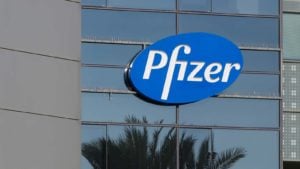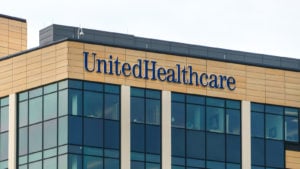
Healthcare stocks continue to struggle. Year-to-date, the S&P 500 Health Care Index is up 2.2%, less than half the growth seen in the broader S&P 500 index. Health insurers, pharmaceutical companies and medical device manufacturers have all been knocked lower as an aging population drives up medical costs, and companies struggle to maintain their profit margins.
Since the Covid-19 pandemic ended, healthcare has underperformed and it has been difficult for investors to make money in health stocks.
A presidential election year poses another risk, as healthcare is often treated like a political football on the campaign trail. Yet, despite the problems of the last few years, some analysts and investors are growing bullish on healthcare.
Earnings are expected to improve throughout this year with companies in the healthcare sector expected to increase profits by 17.5% versus an 11% increase for the S&P 500 as a whole, according to LSEG data.
Value investors are also circling healthcare stocks, attracted by their valuations. Here are the three most undervalued healthcare stocks to buy in April 2024.
Humana (HUM)

Shares of Humana (NYSE:HUM) have taken a beating so far this year, having fallen 34%. The decline began to accelerate after the health insurer reported a surprise loss for the fourth quarter of 2023 and issued weak guidance for all of this year, pushing HUM stock down 16% in a single trading session. For Q4 2023, Humana announced a loss of 11 cents a share on revenue of $25.60 billion. Analysts had expected a profit of 89 cents per share on revenue of $25.50 billion. The guidance also failed to impress.
Management blamed the shock loss on an increase in Medicare Advantage medical costs, as well as higher inpatient utilization rates. Humana has invested heavily in the government-funded Medicare Advantage program that offers health benefits to aging senior citizens. This makes Humana’s earnings sensitive to higher utilization rates among seniors because Medicare Advantage makes up the bulk of its business. An increase in utilization rates for healthcare services erodes Humana’s profits.
Beaten down and now trading at 15 times future earnings estimates, HUM stock looks undervalued. The stock also offers shareholders a quarterly dividend payment of 88 cents, which is good for a yield of 1.14%.
Pfizer (PFE)

At the other end of the earnings spectrum is pharmaceutical giant Pfizer (NYSE:PFE) which reported a surprise profit for Q4 2023 as sales of its Covid-19 medications performed better than anticipated. The drug maker reported Q4 earnings per share of 10 cents compared to a loss of 22 cents that had been expected. Revenue totaled $14.25 billion versus $14.42 billion that was forecast on Wall Street. Despite the surprise profit, Pfizer’s overall sales were down 41% from a year earlier, sending PFE stock lower.
Year-to-date, PFE stock is down 10%. That takes its decline over the past 12 months to 36%. Through five years, Pfizer’s share price has decreased 35%, making it one of the worst performing healthcare stocks. The company has struggled with a rapid decline in its Covid-19 business, where demand has dropped as the medications transitioned to the commercial market. Pfizer has also struggled to develop a weight loss drug, canceling a planned weight loss pill after poor clinical trial results.
Looking forward, the pharmaceutical company said it hopes that its $34 billion acquisition of cancer drug maker Seagen, which closed during Q4 of last year, will restore investor confidence. Though beaten down, PFE stock pays a quarterly dividend of 42 cents a share, good for a high yield of 6.17%.
UnitedHealth Group (UNH)

Like Humana, insurer UnitedHealth Group (NYSE:UNH) has also been clobbered by Medicare Advantage. The largest healthcare insurer in the U.S. reported Q4 2023 financial results that beat Wall Street forecasts on the top and bottom lines. The company reported EPS of $6.16 and revenue of $94.4 billion for the final quarter of 2023. That was better than the consensus forecast of analysts that called for earnings of $5.98 a share and revenue of $92.1 billion.
However, the earnings beat was overshadowed by a utilization rate for Medicare Advantage services that was higher than expected. UnitedHealth said its medical loss ratio for Q4, which tracks the proportion of premiums paid to cover medical expenses, was 85%. Analysts had expected a medical loss ratio of 84%.
Again, a higher medical loss ratio is of concern to analysts and investors because it means more spending on medical expenses and less room for profit. A higher-than-expected utilization of medical services by patients enrolled in Medicare Advantage is a growing issue for UnitedHealth and its hurt the share price.
So far in 2024, UNH stock is down 16%. Trading at 19 times future earnings estimates and with a quarterly dividend of $1.88 a share for a yield of 1.65%, UnitedHealth Group looks attractive at current levels.
On the date of publication, Joel Baglole did not have (either directly or indirectly) any positions in the securities mentioned in this article. The opinions expressed in this article are those of the writer, subject to the InvestorPlace.com Publishing Guidelines.






